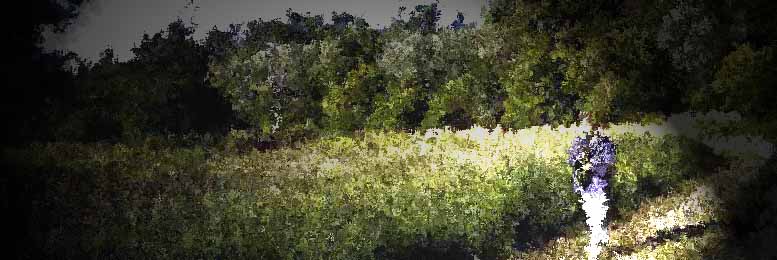13.1.2007 | 05:06
Að rækta kjöt á diski
Fyrir nokkru bloggaði ég hér um afurðir klónaðra dýra og hugsanlega sölu á þeim. Nú er er hins vegar næsta skref þar á eftir að koma til sögunnar, ef marka má fréttir. Það virðist sem sé að það sé farið að styttast í það við þurfum ekki nema agnarögn af dýrunum, til að geta boðið upp á dýrindis steikur.
Næsta skref verður sem sé að rækta kjöt á án þess úr frumum, án þess að leita liðsinnis blessaðra dýranna við verknaðinn.
Ef til getur maður keypt sér örlítinn kjötbita og fylgst með honum vaxa og dafna í ísskápnum, þangað til tímabært er að bjóða vinum sínum yfir í kvöldmat. :-)
En þetta mátti lesa á vef The Times:
"Winston Churchill, a carnivore to the core, saw the future of meat back in 1936. “Fifty years hence,” he wrote, “we shall escape the absurdity of growing a whole chicken in order to eat the breast or wing, by growing these parts separately under a suitable medium.”
In different parts of the world, rival research teams are racing to produce meat using cell-culture technology. Several patents have been filed. Scientists at Nasa has been experimenting since 2001 and the Dutch Government is sponsoring a $4 million (£2 million) project to cultivate pork meat.
The idea may be stomach-turning, but the science for making pork in a Petri dish already exists.
Put simply, the process relies on a muscle precursor cell known as a myoblast, a sort of stem cell preprogrammed to grow into muscle. This cell is extracted from a living animal, and encouraged to multiply in a nutritional broth of glucose, amino acids, minerals and growth factors — Churchill’s “suitable medium”. The cells are poured on to a “scaffold” and placed in a bioreactor, where they are stretched, possibly using electrical impulses, until they form muscle fibres.
The resulting flesh is then peeled off in a “meat-sheet”and may be ground up for sausages, patties or nuggets.
Those readers now choking on their morning fry-ups will be relieved to learn that it is not quite that easy. For a start, the process is prohibitively costly. Growing one kilo of “meat” costs about $10,000, making this by far the most expensive fillet steak in the world. Merely creating a commercially viable growth medium for the cells is a monumental challenge.
Proponents of cultured meat argue that if the hurdles can be overcome then the implications for the human food chain are revolutionary – in terms of animal ethics, environmental protection, and human health. “The effect would be enormous, because there are so many problems associated with meat production,” says Jason Matheny, director of New Harvest, a non-profit group in the US promoting such research.
Meat that has never been part of an entire living animal is potentially far cleaner and healthier. Free from growth hormones and antibiotics, cultured meat could be made healthier by removing the harmful fats and introducing “good” fats such as omega-3."
"It has even been suggested that laboratory meat could expand the gastronomic possibilities for carnivores, since scientists could harvest myoblasts from rare animals without killing anything. Leopard sausages? Coelacanth kedgeree? The issue of cultured meat may, finally, be more philosophical than scientific (or culinary). Would lab-meat represent a step away from the cruelties of much animal production, or yet more disastrous tinkering with the food chain? Would humans be prepared to eat a meat that had never breathed?Even though he had the idea, Winston Churchill would never have replaced old-fashioned meat with high-protein, health-giving, artificial substitute. When an adviser wanted to reduce the wartime meat ration, Churchill refused to countenance it, declaring: “Almost all food faddists I have ever known — nut-eaters and the like — have died young after a long period of senile decay.”"
Sjá fréttina í heild hér
Hér má svo sjá skýringarmynd sem er nauðsynlegt að skoða í þessu samhengi.
Meginflokkur: Stjórnmál og samfélag | Aukaflokkar: Bloggar, Dægurmál, Menning og listir, Tölvur og tækni, Vísindi og fræði | Breytt s.d. kl. 05:09 | Facebook

Athugasemdir
Frábær skýringarmynd. Já heimur batnandi fer ..... eða hvað?
Pálína Erna Ásgeirsdóttir, 13.1.2007 kl. 13:54
Bæta við athugasemd [Innskráning]
Ekki er lengur hægt að skrifa athugasemdir við færsluna, þar sem tímamörk á athugasemdir eru liðin.